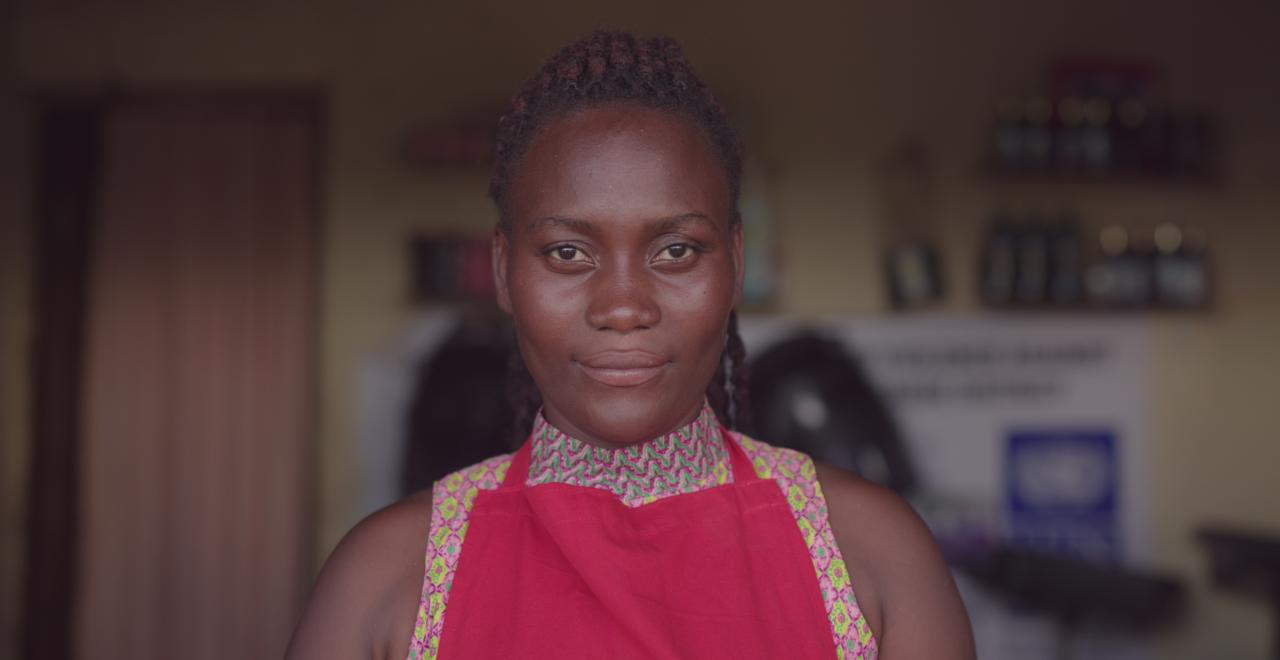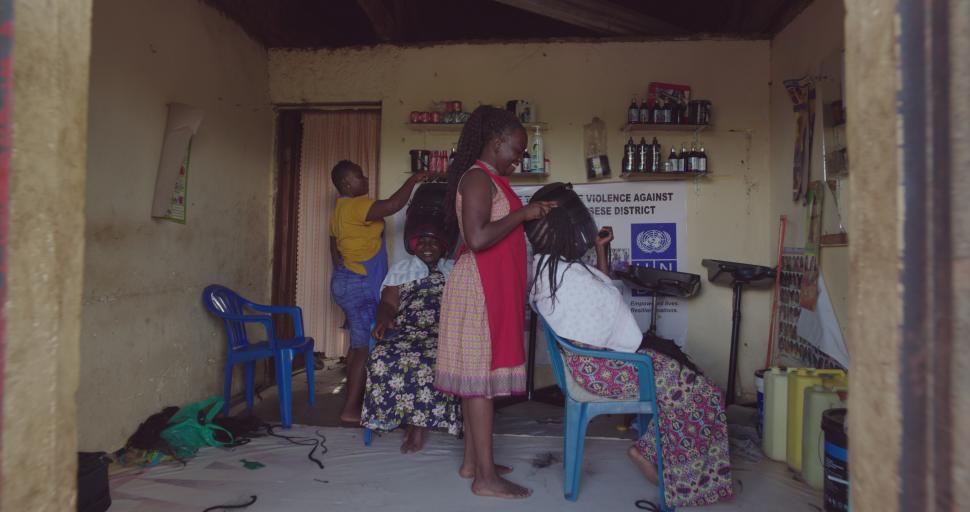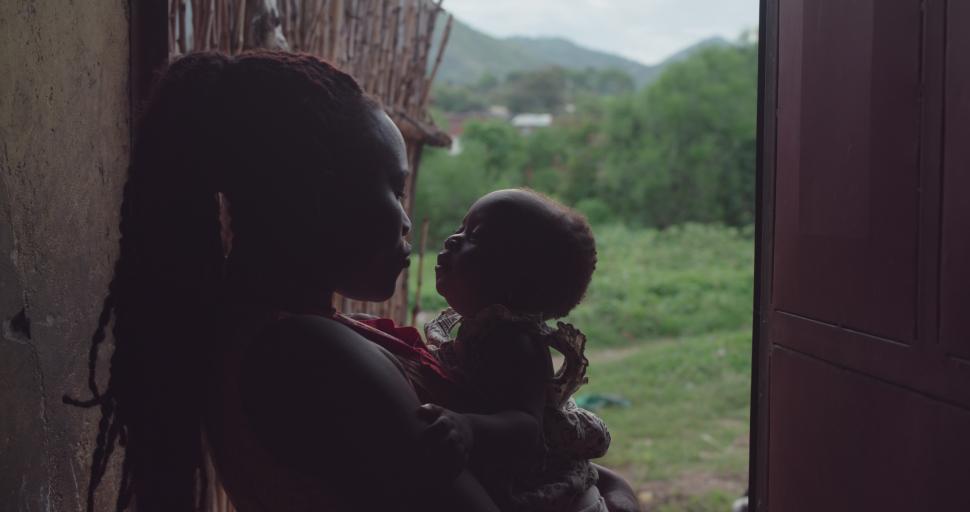
A brighter future: Lillian
KASESE DISTRICT, Uganda – Lillian Nakayingo loves her job, and it shows. She makes conversation easily and can often be found laughing and joking with customers at her hair salon.
But it hasn’t always been this way.
For many years, Ms. Nakayingo worked in a quarry earning around 5,000 shillings (US$1.20) per day – not enough to support her family. It was hard work, made even more difficult by Kasese’s extreme weather. Through rain and heat waves, Ms. Nakayingo would work from dawn until sunset.
“You would only get paid for the day, so if you did not go, you will not get paid and your child will not eat,” she explains.
Her situation became more dire when her husband lost his job and began drinking in excess. “He demanded money from me every day when I got home from work [for alcohol],” she explains. “When I was hesitant, he would turn violent.”
“He demanded money from me... When I was hesitant, he would turn violent.” - Lillian Nakayingo, survivor and business owner
Ms. Nakayingo eventually left her husband, but with no reliable income, the family would sometimes go without food and the children’s school attendance was inconsistent.
In 2021, Ms. Nakayingo became one of 90 gender-based violence survivors at the quarry to complete a Spotlight Initiative-supported alternative livelihood training through the United Nations Development Programme, UNDP.
“The Mayor came to the quarry. He told us about a programme for women and girls that are in abusive marriages or relationships and explained that they offer skills training so that we could be empowered financially,” Ms Nakayingo explains.
Freedom from violence
According to UN data, almost 30 per cent of women and girls in Uganda have experienced intimate partner violence in the past 12 months. Without a decent independent wage, many are forced to choose between an uncertain future or remaining with their abusers for food and a place to live.
Spotlight Initiative aims to eliminate violence against women and girls through comprehensive programming that addresses all key drivers of violence. It promotes laws and policies that prevent violence, strengthens institutions, promotes gender-equitable social norms, strengthens women’s movements and provides essential services to survivors of violence, including long-term recovery options such as vocational training. Since 2019, almost a million Ugandan women and girls have accessed long-term recovery options through Spotlight Initiative’s support.
“Since childhood, I’ve dreamed of having my own hair salon.” - Ms. Nakayingo
Ms. Nakayingo completed training with COSMESS Uganda, a local non-governmental organization. She could select from a range of courses, but says the choice was easy.
“Since childhood, I’ve dreamed of having my own hair salon,” she says. “There was a neighbour when we were growing up that used to do hairstyling behind the mango tree. On Christmas Eve, everyone would gather around her … She prospered to the point that she was able to buy her own land, build a house and put a salon on it.”
But it wasn’t just the neighbour’s financial success that had inspired Ms. Nakayingo.
“[It was] also the joy with which she did what she did, and the joy that other people got from it. That’s how the seed [for my own business] was planted,” she explains.
From novice to business owner
Ms. Nakayingo put all her energy into studying. The course taught her the practical elements of hair styling, but she also learned about her rights as a citizen, gender-based violence and where to seek help. Additionally, the course covered skills like financial planning and how to formalize and register a business in the sub-county. At the end of training, she received some equipment and supplies to help get her started.
At first, things were slow. “The local people viewed us as novices, but when they saw the quality of what we did, the business grew,” she says.
"When customers saw the quality of our work, the business grew." - Ms. Nakayingo
Today, Ms. Nakayingo rents her own shop space and invites other gender-based violence survivors to operate there. “They come and use the space, get some money and are able to take care of their babies as well,” she says.
Best of all, she can use her creativity to earn an income that’s entirely her own.
“I no longer need a man for basic things like food that would put me in a position of being violated,” she says. “I am taking care of the bills for the children’s education [myself].”
The global Spotlight Initiative to eliminate violence against women and girls is a United Nations high-impact initiative in partnership with the European Union and other partners. In Uganda, it is implemented by the Government of Uganda, the European Union, UN Women, UNFPA, UNICEF, UNDP and UNHCR in partnership with OHCHR, IOM, Pulse Lab and civil society. Since 2019, almost 300,000 people in Uganda have attended community programming on women’s rights with Spotlight Initiative support.


